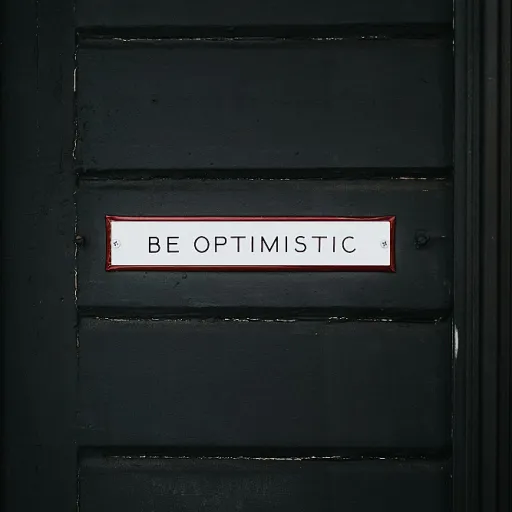
Defining the preliminary interview
What is a Preliminary Interview in Recruitment Process Outsourcing?
A preliminary interview, often called a pre-screening interview, is the first structured step in the recruitment process. It acts as a filter to assess applicant qualifications and suitability for a specific role before moving forward in the hiring process. Employers and recruitment process outsourcing (RPO) providers use this stage to quickly identify promising candidates who meet the basic requirements for the job and align with the company culture.
During this early stage, the focus is on evaluating essential skills, experience, and overall fit for the position. The preliminary interview is not as in-depth as a traditional job interview, but it is crucial for narrowing down the talent pool. This step helps companies save time and resources by ensuring only the most suitable applicants proceed to the next phase of the selection process.
Typical interview questions in a pre-screening interview revolve around the applicant's background, motivation, and understanding of the job. Employers may also assess communication skills and cultural fit, which are vital for long-term success within the company. The process can be conducted via phone, video call, or even through digital questionnaires, depending on the company's approach and the nature of the position.
For those interested in how talent sourcing fits into the broader recruitment process, you can learn more about the role of a talent sourcer in recruitment process outsourcing.
Why preliminary interviews matter in recruitment process outsourcing
Why early-stage interviews shape the hiring process
In recruitment process outsourcing (RPO), the preliminary interview—often called a pre screening or screening interview—plays a crucial role in shaping the entire hiring process. This early stage is not just about filtering applicants; it’s about setting the tone for the experience of both candidates and employers. The pre interview helps RPO providers and companies quickly assess applicant qualifications, communication skills, and suitability for the specific role. By doing so, it ensures that only the most promising candidates move forward to the next steps of the recruitment process.
Aligning talent with company culture and job requirements
One of the main reasons preliminary interviews matter is their ability to evaluate both technical skills and cultural fit. Employers want applicants who not only meet the job requirements but also align with the company culture and long-term goals. During these interviews, recruiters ask targeted interview questions to gauge an applicant’s motivation, experience, and fit for the position. This step is essential for narrowing down the talent pool and making informed hiring decisions.
Optimizing time and resources for employers
Preliminary interviews help companies save valuable time and resources. By conducting an initial screening, RPO providers reduce the number of job interviews needed later in the process. This means hiring managers can focus their attention on candidates who have already demonstrated a strong match for the role. The result is a more efficient selection process and a better experience for everyone involved.
For a deeper look at the professionals who drive this crucial step, explore the role of a talent sourcer in recruitment process outsourcing.
How preliminary interviews are conducted
What happens during a pre screening interview?
The preliminary interview, often called a pre screening interview, is a crucial early stage in the recruitment process outsourcing (RPO) journey. This step helps employers and RPO providers quickly assess applicant qualifications and determine if candidates are a potential fit for the specific role and company culture. Here’s how these interviews are typically conducted:- Initial contact: The process usually starts with a recruiter reaching out to promising candidates, often by phone or video call. The goal is to verify basic information and gauge interest in the job.
- Structured interview questions: Recruiters ask targeted questions to assess applicant skills, experience, and suitability for the position. These questions often focus on work history, relevant achievements, and motivation for applying.
- Evaluating communication skills: Since communication is vital in most roles, the pre interview is a chance to observe how applicants express themselves and respond under light pressure.
- Cultural fit assessment: Recruiters may ask about values, work style, and preferences to see if the candidate aligns with the company culture and long term goals.
- Clarifying expectations: Both the company and the applicant can discuss job requirements, salary expectations, and availability, ensuring alignment before moving forward in the hiring process.
- Documentation and feedback: Notes from the screening interview are recorded and shared with hiring managers to inform the next step in the selection process.
Tools and technology in the interview process
Modern RPO providers often leverage digital platforms to streamline the interview process. Video interviews, automated scheduling, and online assessments help save time resources and provide a consistent experience for all applicants. These tools also make it easier to compare candidates objectively and ensure a fair recruitment process.Linking the pre interview to the broader recruitment process
The preliminary interview is not an isolated step. It connects directly to requisition management, which is essential for tracking open positions and applicant progress. For a deeper understanding of how requisition numbers play a role in the overall recruitment process, you can read more about the importance of requisition numbers in recruitment process outsourcing. By conducting effective pre screening interviews, companies and RPO partners can ensure only the most suitable candidates advance, making the hiring decision process more efficient and aligned with organizational needs.Key benefits for companies and candidates
Advantages for Employers and Applicants
The preliminary interview, often called the pre screening interview, is a crucial step in the recruitment process outsourcing journey. It brings significant benefits for both companies and candidates, shaping the overall hiring experience and improving the quality of the selection process.
For Companies: Streamlining the Hiring Process
- Efficient use of time resources: By filtering out applicants who do not meet the basic qualifications or fit for the specific role, employers can focus on promising candidates, saving valuable time and effort in later stages.
- Improved quality of hire: Early assessment of skills, experience, and cultural fit helps ensure that only the most suitable applicants move forward, increasing the likelihood of a successful long term match.
- Consistent evaluation: Standardized interview questions and structured interviews help maintain fairness and objectivity, reducing bias in the selection process.
- Better alignment with company culture: Early conversations allow employers to assess applicant alignment with company values and expectations, which is critical for retention and team cohesion.
For Candidates: Clarity and Opportunity
- Understanding the job and company: The pre interview gives candidates a chance to learn more about the position, the company, and what pre screening criteria are important, helping them decide if the opportunity matches their career goals.
- Showcasing communication skills: Early stage interviews allow applicants to demonstrate their interpersonal and communication skills, which are often key factors in the hiring decision.
- Feedback and transparency: Candidates receive early feedback on their suitability for the role, which can help them improve for future job interviews or adjust their expectations.
Mutual Fit and Reduced Turnover
By focusing on both applicant qualifications and cultural fit during the screening interview, the process supports better matches between employers and talent. This not only enhances the experience for all parties but also reduces the risk of early turnover, benefiting the company and the new hire in the long run.
Challenges and pitfalls in preliminary interviews
Common Obstacles in Early-Stage Interviews
Preliminary interviews are a crucial step in the recruitment process, but they come with their own set of challenges. Employers and recruitment process outsourcing providers must navigate these pitfalls to ensure the best outcomes for both the company and the candidates.
Potential Issues with Assessing Fit and Skills
One of the main difficulties is accurately assessing applicant qualifications and cultural fit during a short pre screening or screening interview. At this early stage, interviewers often rely on limited information and may not have enough time to fully evaluate communication skills, technical abilities, or alignment with company culture. This can lead to promising candidates being overlooked or, conversely, applicants advancing who may not be suitable for the specific role in the long term.
Consistency and Bias in the Interview Process
Another challenge is maintaining consistency in interview questions and evaluation criteria. Without a structured approach, different interviewers might assess applicants differently, introducing bias into the selection process. This inconsistency can impact the fairness of the hiring decision and affect the overall quality of talent brought into the company.
Resource Constraints and Time Management
Managing time resources efficiently is also a concern. Conducting numerous preliminary interviews can be time-consuming for employers, especially when dealing with a high volume of applicants for a job opening. If not managed well, this can slow down the hiring process and result in a poor experience for both candidates and hiring teams.
Communication Gaps and Candidate Experience
Clear communication is essential during the early stage of the recruitment process. Miscommunication about the position, company expectations, or next steps can leave candidates confused or disengaged. A lack of feedback after the pre interview can also harm the employer brand and discourage top talent from pursuing future opportunities with the company.
Balancing Thoroughness with Efficiency
Finally, there is a delicate balance between being thorough in assessing applicants and moving efficiently through the hiring process. Overly rigid or lengthy pre interviews may deter qualified candidates, while a rushed approach can result in missing out on the best fit for the job. Employers must continuously refine their approach to ensure the preliminary interview remains an effective and fair step in talent selection.
Best practices for a successful preliminary interview
Preparing for Effective Pre Screening
A successful preliminary interview starts with clear preparation. Employers should define what pre screening aims to achieve for the specific role. This means outlining the essential skills, experience, and qualifications needed for the job. Having a structured set of interview questions helps assess applicant suitability and ensures consistency across interviews. It’s also important to communicate the company culture and expectations early, so candidates can self-assess their fit.Building a Structured Interview Process
A well-organized interview process is key. Use a consistent format for each screening interview to fairly compare applicants. This includes:- Standardized questions to evaluate communication skills and job-specific abilities
- Clear criteria for assessing applicant qualifications and cultural fit
- Notes or scoring sheets to document responses and impressions













